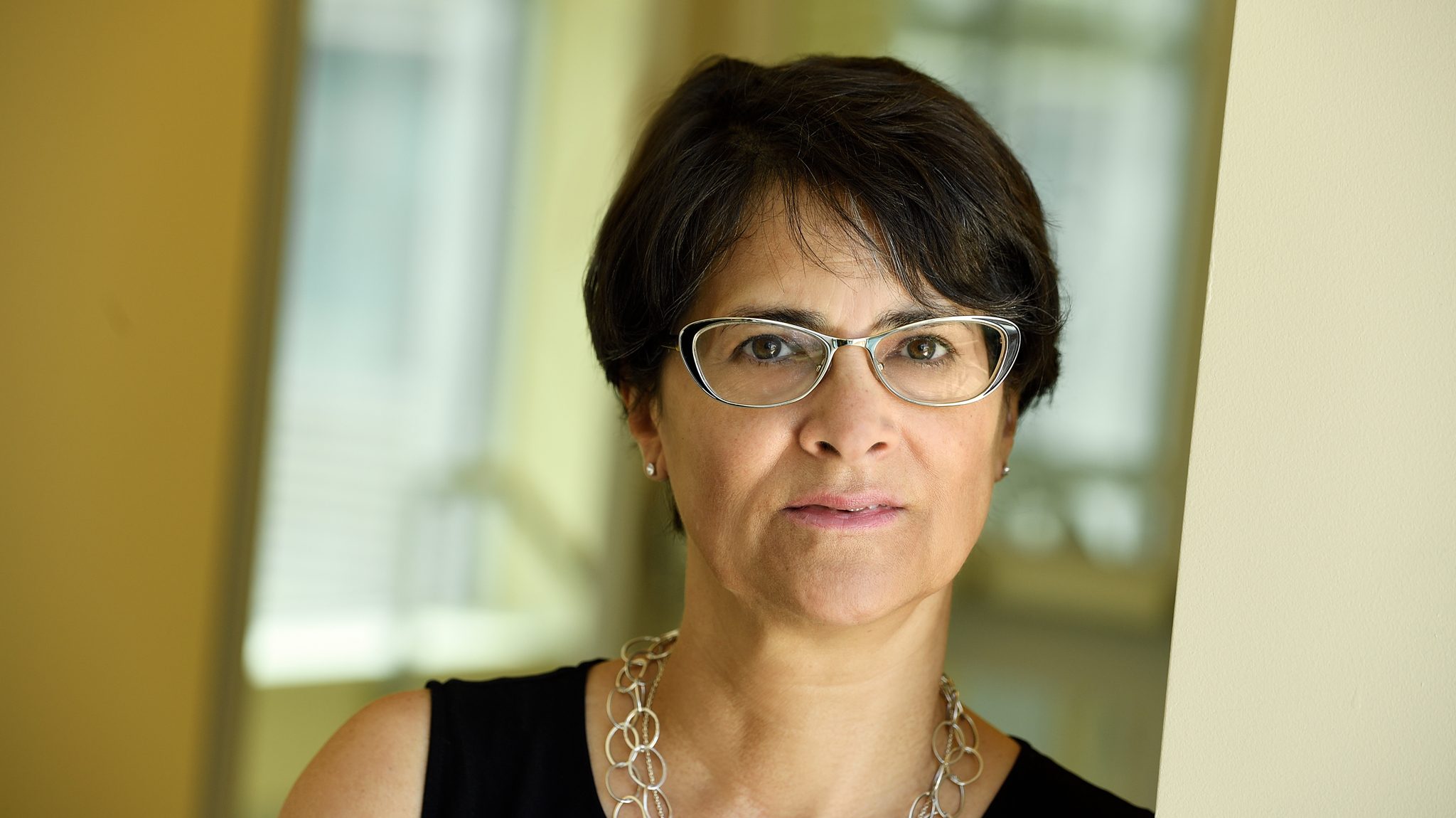OXFORD, Miss. – The rights extended to people who reside in the United States and whether or not those people are considered citizens is an incredibly timely topic, and historian Martha S. Jones can connect lessons and information from the past that shed light on the current landscape.
Jones, the Society of Black Alumni Presidential Professor and professor of history at Johns Hopkins University, will give the 2019 Gilder-Jordan Lecture in Southern Cultural History at 7 p.m. Sept. 17 in Nutt Auditorium at the University of Mississippi. The event is free and open to the public.
She is a legal and cultural historian whose work examines how black Americans have shaped the story of American democracy. Her talk focuses on the first chapter of her book, “Birthright Citizens: A History of Race and Rights in Antebellum America” (Cambridge University Press, 2018).
 “It begins with how black Americans – former slaves – claimed to be birthright citizens before the Civil War, only to have that claim affirmed in 1868 with the ratification of the 14th Amendment’s birthright citizenship clause,” Jones said. “It ends in the post-Civil War period with the case of Chinese Americans, people though born in the U.S. who were said to be noncitizens.
“It begins with how black Americans – former slaves – claimed to be birthright citizens before the Civil War, only to have that claim affirmed in 1868 with the ratification of the 14th Amendment’s birthright citizenship clause,” Jones said. “It ends in the post-Civil War period with the case of Chinese Americans, people though born in the U.S. who were said to be noncitizens.
“The 14th Amendment transformed the U.S. citizenship regime, but it did not extinguish struggles over who does and does not belong, a struggle that continues until today.”
Jones is also author of “All Bound Up Together: The Woman Question in African American Public Culture 1830-1900” (University of North Carolina Press, 2007) and a coeditor of “Toward an Intellectual History of Black Women” (University of North Carolina Press, 2015,) along with many articles and essays.
“Birthright Citizens” is an important book for many reasons because it is an exciting, original volume that helps readers to think about multiple issues of race and the law, as well as citizenship status of immigrants and their children, said Ted Ownby, UM William Winter Professor of History and professor of Southern studies.
“Jones’ book studies citizenship not just through the courts, but through public gatherings and activist groups, newspapers, churches and groups of working people to figure out where they stood,” Ownby said. “It’s a study of the law from the perspective of people – free people of color in pre-Civil War Baltimore – whose claims to citizenship weren’t clear, so they were always working, always negotiating to improve and clarify their claims on the legal and political system.
“Baltimore is an especially important subject both because of its place on the edge of slavery and as an important port city, but also as the home of Roger Taney, the Supreme Court justice who wrote the Dred Scott decision in 1857, arguing that black Americans could not be citizens of the U.S.”
Jones holds a doctorate in history from Columbia University and a Juris Doctor from the CUNY School of Law. Before starting her academic career, she was a public interest litigator in New York City, recognized for her work as a Charles H. Revson Fellow on the Future of the City of New York at Columbia University.
“My experience as a lawyer helps me to appreciate how the histories I write might be of use to those debating law and policy today,” Jones said. “In the classroom, it has led me to embrace experiential, or problem-based, learning.
“This means that my students can expect to study history through scholarly materials and to then roll up their sleeves and become historians in their own right.”
Anne Twitty, UM associate professor of history, said it is “wonderful” that Jones will be on campus because her work helps illuminate the multitude of ways black Americans participated in national and local civic life during the antebellum era.
“The actors her work examines imagined and helped create a more inclusive nation,” Twitty said. “Jones argues that concepts of birthright citizenship did not spring forth fully formed after the Dred Scott decision, nor was the concept entirely the work of the black convention movement or black intellectuals more broadly.
“It was, instead, antebellum free black people’s daily experiences as workers, church members, parents and property, business or gun owners that were central.”
Jones is working on “Vanguard: A History of African American Women’s Politics” (Basic), to be published in 2020 in conjunction with the 19th Amendment’s centennial, and is at work on a biography of U.S. Supreme Court Chief Justice Roger Brooke Taney. She is recognized as a public historian, frequently writing for broader audiences at outlets including the Washington Post, the Atlantic, USA Today, Public Books, the Chronicle of Higher Education and Time.
She also curates museum exhibitions, including “Reframing the Color Line” and “Proclaiming Emancipation” in conjunction with the William L. Clements Library, and collaborates with the Smithsonian’s National Portrait Gallery, the Charles Wright Museum of African American History, the Southern Poverty Law Center, PBS, Netflix and Arte (France.)
Jones serves as a president of the Berkshire Conference of Women Historians and on the Organization of American Historians Executive Board.
Organized through the Center for the Study of Southern Culture, the African American studies program, Center for Civil War Research and the Arch Dalrymple III Department of History, the Gilder-Jordan Speaker Series is made possible through the generosity of the Gilder Foundation. The series honors Richard Gilder of New York and his family, as well as his friends, Dan and Lou Jordan of Virginia.
